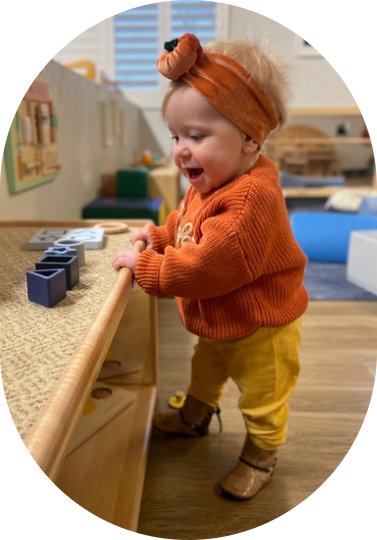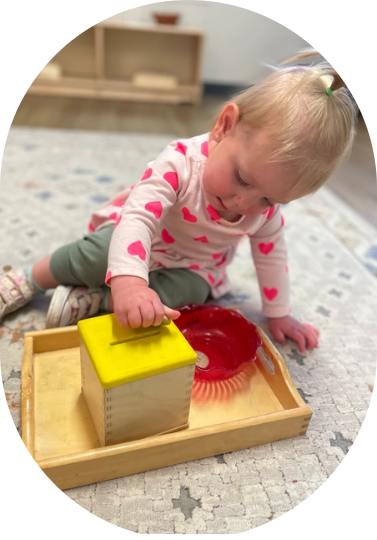Nido
Welcome to our Nido Community!
When the child is ready, we sit together to enjoy family style meals. Infants who are still exclusively bottle fed are held or supported and provided undivided attention during their feedings. Mothers are welcome to come in during the day to bottle or breastfeed their infant on our gliders. When your child begins to meet the milestones of walking independently, self-feeding, drinking from an open cup and down to one nap during the day, she will transition into the Toddler Community
Our Approach
Strong Bodies And Coordinated Movement
For babies to fully learn to do all these things, they must have time, space, and freedom to move, so that they can practice each individual step along the way. When you first visit a Montessori Nido community, you’ll probably notice that there are no playpens, no jumpers, no walkers, and no high chairs—nothing that restricts your baby’s movement.


Confidence
Self-feeding is one of the early ways that your baby can practice independence in the area of self-care. As your baby learns to sit reliably, she sits at a tiny table on a sturdy chair, sized so that she can crawl in and out of the chair herself.
Developing language
As your baby becomes more familiar with precise language, he also begins to form connections between language, tone, and his own emotions. We expose your baby to as much vocabulary as possible, by clearly identifying objects and actions. Additionally, we read beautiful books about real people and things, and we sing — exposing your child to the full range of speech and expression.

